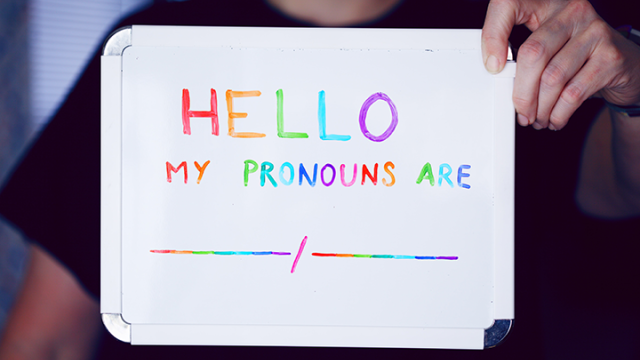INSIGHT
The History of Canadian 2SLGBTQIA+ Rights & What It Means for Business Travel

The fight for 2SLGBTQIA+ rights in Canada has been a long, long road. So much has changed, yet there is still much work to be done.
Did you know that it was only in 1969 that Canada decriminalized homosexual acts between consenting adults with the passage of the Criminal Law Amendment Act?
Or that it was only 1996, when Bill C-33 received Royal Assent? It was with this bill that "sexual orientation" was added to the Canadian Human Rights Act.
Even more recent, in 2005, the Parliament of Canada enacted the Civil Marriage Act,1 which finally legalized same-sex marriage. Canada became the fourth country to take that step.
The journey for trans rights has also been long in the making. In 2017, the Canadian Armed Forces tweeted a welcome to transgender members while in the US, the Trump Administration was trying to reenact a ban. Even though the CAF has had a policy in effect since 2012, an update to the existing policy and language was made in 2017.
Canada’s Federal 2SLGBTQI+ Action Plan
In August 2022, the federal government of Canada launched the 2SLGBTQIA+ Action Plan in an effort to advance rights and improve social, health, and economic outcomes for 2SLGBTQIA+ Canadians.
The action plan is to be implemented over the coming five years, and is distributed across 6 main priority areas:
- To support the growth and sustainability of 2SLGBTQIA+ community organizations
- Promote and strengthen 2SLGBTQIA+ rights in Canada and around the world
- Support the resilience and resurgence of Indigenous 2SLGBTQIA+ communities
- Drive awareness in Canada to foster a 2SLGBTQIA+ inclusive future
- Improve the collection of 2SLGBTQIA+ data and support evidence-based policy making
- Advance 2SLGBTQIA+ issues to coordinate in the work of the Government of Canada
What does all this mean for corporate travel? Firstly, it should remind us that the fight for protection and empowerment of 2SLGBTQIA+ people is far from over, and that even with all of these improvements to policies, there are still efforts to isolate and discriminate against the 2SLGBTQIA+ population.
Let’s take a look at some travel focused statistics.

2SLGBTQIA+ Traveller Statistics
In Canada, around 86% of 2SLGBTQIA+ Canadians hold passports, compared to only 65% of the overall population. Of the estimated $218 billion travel market, Canada’s 2SLGBTQI+ travel market is booming at a valued $12 billion. Wow!
In 2019, AirBnB released their 2SLGBTQIA+ Travel Trends Report. In the report 86% of 2SLGBTQIA+ respondents said a destination’s policies toward the 2SLGBTQIA+ community are at least somewhat important.
In a SAP Concur study from 2019, they found that nearly all (95%) respondent 2SLGBTQIA+ business travellers hide their sexual orientation when traveling for safety reasons (57%). More than half (51%) hide their sexual orientation to protect their privacy and 46% were concerned about anti-2SLGBTQIA+ laws in the destination visited.
So, what’s next for 2SLGBTQIA+ business travel?
The studies show that 2SLGBTQIA+ Canadians are still nervous about travel outside of Canada, despite an urge to do so. It’s crucial for the success and inclusivity of corporate travel programs to include 2SLGBTQIA+ views and concerns in business travel policies and procedures. You might consider starting an employee resources group, surveying employees anonymously, or appointing a head of DEI to focus a lens on 2SLGBTQIA+ needs.
To make a change, we’ll all need to work together.
*2SLGTBQIA+ is an acronym for Two-Spirit, Lesbian, Gay, Bisexual, Transgender, Queer and/or Questioning, Intersex, Asexual and other non-heterosexual orientations or non-cisgender identities.


